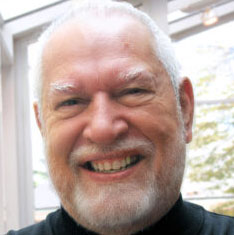TWiV dissects a study of COVID-19 vaccination which shows that the timing of initial rollout affects disease outcomes more substantially than final coverage or degree of socioeconomic disparity, and discovery of a novel cellular defense comprising a nuclease that is activated by poxvirus infection and cleaves a specific tRNA molecule to inhibit protein synthesis.
From the NIH campus (recorded February 2019) Vincent and Rich meet with Bernie Moss to hear about his training and his remarkable 50-year-plus career working on poxviruses
The TWiVstars reveal the diversity of herpes simplex virus type 2 in a neonatal population, and parallel adaptation of rabbits in three countries to myxoma virus.
The TWiVerati discuss the FDA Advisory Committee deliberation on the anti-poxvirus drug tecovirimat, and immune cells in gut-associated lymphoid tissue as the major target during acute murine norovirus infection.
From the TWiV team, human cowpox infection possibly acquired from a pet cat, and a new giant mimivirus of green algae with genes encoding enzymes of fermentation.
The TWiV team reveal the origin of the poxvirus membrane, and how a retrovirus drove the development of the placenta of a lizard.
The Masters of the ScienTWIVic Universe discuss a novel poxvirus isolate from an immunosuppressed patient, H1N1 and the gain-of-function debate, and attenuation of dengue virus by recoding the genome.
The TWiV team reviews identification of immune biomarkers in CFS/ME patients, and how a cell nuclease controls the innate immune response to vaccinia virus infection.
This episode of TWiV was recorded before an audience at the Beth Israel Deaconess Medical Center, where Vincent and Alan spoke with Dan and Jeff about AIDS vaccines.
Vincent and Rich recorded this episode before an audience at the 2nd Li Ka Shing Institute of Virology Symposium at the University of Alberta, where they spoke with Dave, Stan, and Lorne about their work on poxvirus vaccines and recombination, an enveloped picornavirus, antivirals against hepatitis B and C viruses, and supporting virology research in Alberta.









